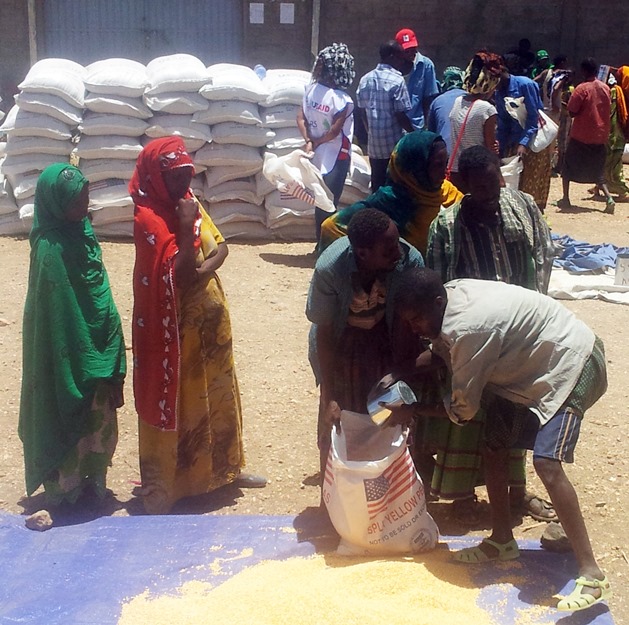|
Ethiopia: 'I've never seen a drought like this in my life before'
Tuesday, February 2, 2016
Many children can no longer even get to school, since they are too weak to cope with the often long and difficult walk to school.
By Eva-Maria
Kolmann
NEW
YORK—Hunger is nothing new for the people of Ethiopia. Various
areas of the country are regularly ravaged by dry spells. Nevertheless, not
since many years ago has the situation been as critical as it is today: Roughly
18 million people are affected by the current drought.
The
cattle are dying, the people are forced to abandon their villages to go in
search of food in less severely affected areas; nomadic peoples, in search of
pasture for their livestock, are now moving into new areas, sparking conflict
with the local population. Many children can no longer even get to school,
since they are too weak to cope with the often long and difficult walk to
school.
Hagosa
Gebru is the mother of a family of nine. She told international Catholic
charity Aid to the Church in Need: "My family has had to reduce the number
and size of our daily meals. We need food, so that our children can continue
with their education."

Tsega
Aregawi has eight children. She is still breastfeeding one of them. She said:
"I've never seen a drought like this before in my life. None of the seeds
we have planted have grown. We've managed to survive so far by eating the wild
cactus, and we fed our cattle on what was left of the cactus. But now this food
has also dried up. I'm afraid of what will happen if the government and the aid
agencies don't help us.”
In a
recent statement, the Catholic bishops' conference of Ethiopia warned that
young people are increasingly likely to take the risk of emigrating abroad
using illegal channels, in order to search for work. "Elderly parents will
be left behind without any children, wives without their husbands, who are in
many cases the main breadwinners of their families, and women and girls will be
exposed to all kinds of violence and abuse,” the bishops warned.
It
is also extremely important to help the local catechists, who play a
particularly crucial role in Ethiopia, as in many other countries of Africa. Most
parishes are vast, and priests simply cannot visit every village often enough.
Consequently, it is the catechists who teach the faith to the people in the
villages, prepare them for the sacraments and pray with the people.. They
manage to support their often large families by what they can grow on the land.
Now,
when the harvests are failing, there is a danger that the catechists too will
have to emigrate to find work elsewhere. This would leave the faithful in many
villages without any pastoral support at all. Hence it is of the greatest
important for the life of these communities to be able to support their
catechists.
Aid to the Church in Need is providing emergency aid for 1,415 of these lay catechists in
the 13 dioceses worst affected by the drought. The aid comes to a
total of $500,000, or approx. $300 per family for the entire year.
Food aid distribution in Ethiopia; ACN photo
|